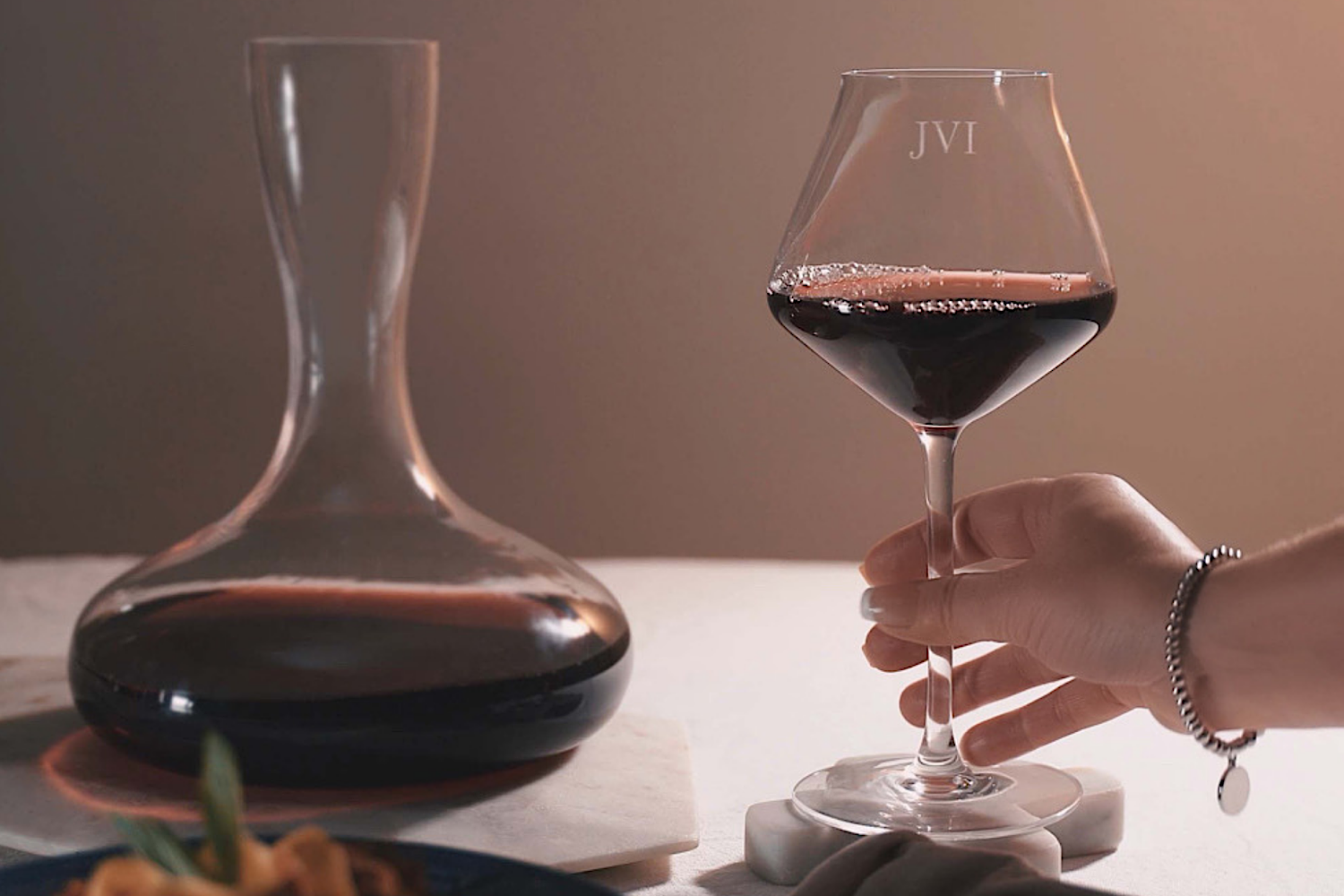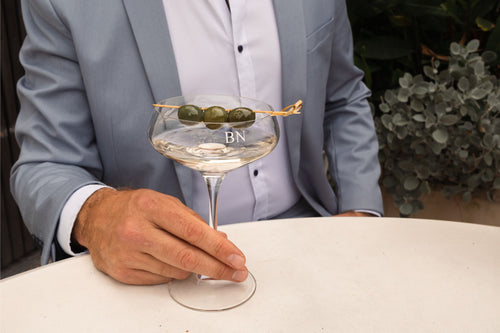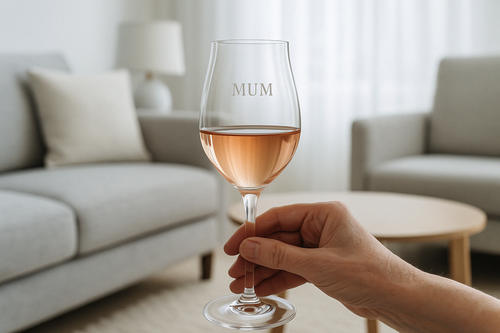
So you've just been given some fancy wine for a gift or you thought you would spoil yourself by purchasing an expensive bottle of wine for a special occasion. Perhaps you accidentally forgot about that decent bottle of wine hidden away and rediscovered in a decade later. You want to ensure your wine drinking experience lives up to the precious liquid stored in that exquisite looking bottle. You know you have to decant the wine, but you have no idea what this means and how to do it yourself.
Fear not, Nouvelle Glass comes to the rescue with this simple guide to decanting wine.
WHAT IS WINE DECANTING
Decanting is the separating wine from residual sediment. Aged wines (particularly red wines) and vintage ports contain sediment that settle at the bottom of the wine. This sediment is simply a natural byproduct of making wine. This is normal and not harmful, but consuming it just results in a taste that is undesirable. Decanting wine is simply a method to slowly pour the contents of a wine bottle of wine into another vessel, without disturbing the sediment. In this case the vessel you are pouring it into, is a Wine Decanter.
ADVANTAGES OF WINE DECANTING
Aeration
Wine spends quite a long time inside the bottle with no contact with oxygen. Aeration is then required to increase all the dormant aromas in your wine by releasing gas bubbles and softening the tannins (that dry, bitter taste in wine).
Enhanced Flavours
Exposure to oxygen allows the wine to have more air time, thereby bringing out the true flavour profile of the wine.
Broken Cork? No Worries
Most wines now are produced using screw caps, reducing the need to open your bottle with a bottle opener. However many vintage wines (which require decanting the most) are still sealed with corks. Sometimes a cork can break during the opening of a bottle and drop into that expensive drop. Decanting can save your precious bottle. This broken cork, along with the sediment will gather near the neck of the bottle when you decant into another vessel and will prevent it from transferring into the decanter.
WHAT WINES NEED DECANTING?
Red wines are decanted the most, however white wines and rosés can also benefit from it. Even young wines can benefit from decanting, if not just for aeration purposes rather than sediment separation. Certain varieties/types of wine need to be decanted regardless, these include: Malbecs, Shiraz (Syrah), Cabernet Sauvignon, Bordeaux and Burgundy. Sparkling wines do not need to be decanted as they won't benefit from aeration due to bubbles going flat the longer it is aerated.
THE STEPS TO DECANTING WINE
Decanting should be done up to a couple of hours before you intend to consume your wine:
Preparing the Bottle for Decanting
Sit the bottle upright for a whole day before you intend to decant the wine. This is to allow the sediment to flow down and settle.
Opening the Bottle
Using a corkscrew, open the bottle. Aim down the middle of the cork, to prevent the cork from splitting or breaking up. But don't worry, if you make a mistake, you can still save the wine when you transfer the wine into the decanter.
Transfer the Wine
Do not let the bottom of the bottle go beyond 45 degrees, when tilting the neck toward the decanter. Ensure the pour is at a steady pace and keep an eye for any sediment going heading into the neck of the bottle. You can use a light source, such as a candle to shine through the neck to keep an eye on this.
If you see any sediment about to pass through, stop, and return the bottle to it's upright position, give it some time to settle again and recommence the decanting process.
Leave a small of wine (about 15 mls) at the bottom of the bottle along with the sediment.
Decanting Time
The amount of time it takes for the aeration process depends on the wine style. In general, light-bodied red wines can take approximately 20 minutes, whereas medium-bodied red wines can take 30-60 minutes. Full-bodied wines can take 1-2 hours, even more. White wines, Rosé wines and other styles do not need as much oxygen exposure and therefore under 30 minutes is suffice.
ENJOY THE EXPERIENCE
Whether you are a wine connoisseur or just an everyday wine lover, knowing how to decant wine opens a whole new world of wine discovery. It gives you more confidence when handling mature wines or more expensive wines (they mostly go hand in hand, but not always). It allows you to explore more complex flavours that you otherwise wouldn't, if you just left it sitting in the bottle. So with this new found knowledge, we hope that you get many more years of wine enjoyment.

THE NOUVELLE GLASS "JOSHUA" DECANTER
Our Nouvelle Glass "Joshua" Decanter is our finest European made premium crystal decanter. This classic vintage style is matched with a quality technical shape for optimum wine oxidation and evaporation, necessary to reach your wine’s peak deliciousness. Get yours here!






